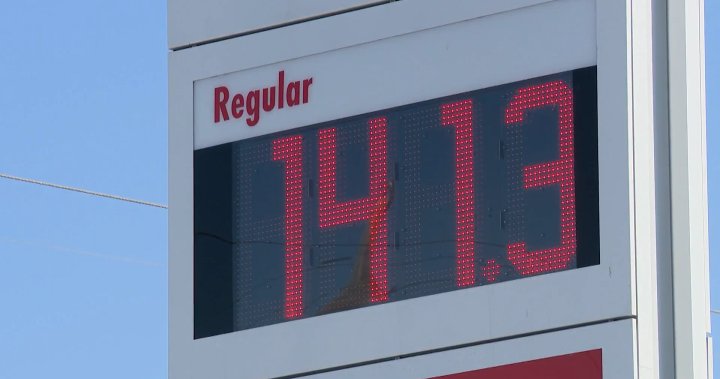It was a sight Alberta drivers certainly were excited to see on Tuesday — even if they didn’t anticipate it.
“I came off the highway on empty, so it was definitely a good time,” said Andrew, who fills up his SUV about once a week.
The end of the federal consumer carbon price was reflected at pumps across Calgary on Tuesday morning — the average price per litre dropping by as much as 20 cents.
“I saw on the news yesterday that a tax cut was coming… I was happy I didn’t fill up yesterday,” laughed Devon, who’s at his local gas station once every four days, putting 91 octane into his Subaru.
For the average driver with a 60 litre tank, a reduction in fuel prices by 18 cents per litre means spending about $10 less each time they fill up.
But analysts say the positive change may not be permanent.
“The underlying cost of oil is also going up,” explained Patrick De Haan, Head of Petroleum Analysis at GasBuddy.
Get breaking National news
For news impacting Canada and around the world, sign up for breaking news alerts delivered directly to you when they happen.
So it may be more in the realm of the 15-cent-a-litre drop that most Canadians end up seeing.”
According to GasBuddy’s historical price tools, the average price at the pump dropped from $1.57 per litre on Monday, to around $1.46 on Tuesday.
But that number could go lower, according to De Haan, as soon as every station gets on board with the new change.
“This is going to have to be updated (by gas stations), software updates may be necessary to remove this line item expense.”
“So some stations that are better organized may have this already timed and automated, while some stations may have to manually make this update.”
It’s not the lowest price in a long time — Calgarians enjoyed fuel prices under $1.40 per litre as recently as December 2024.
But newfound savings should be coming to their home energy bills in short order.
“It’ll take a month or so to see these changes, but certainly we’ll see a fall in those costs as well,” explained Anupam Das, Professor of Economics at Mount Royal University.
Some folks who don’t drive may be waiting for prices on the grocery shelves to drop in order to realize any savings for themselves.
Das says that will take more time — and recent precedent shows it may not really happen at all.
“What we saw during COVID was there was a supply chain issue, so prices went up,” Das explained.
“But even when the supply chain issue was resolved, the prices didn’t go down that much.”
While no one filling up was lamenting the end of the carbon tax on Tuesday, Das said there could be negative effects – particularly for low-income families.
“The other side of the story is that the carbon tax also came with a rebate — and that rebate particularly helped low-income households, which generally were not using as much carbon as wealthy households.”
A thought for another day, say drivers who spoke with Global News on Tuesday.
“I’m going to be saving a good amount,” Devon says.
“I’m happy about this.”
© 2025 Global News, a division of Corus Entertainment Inc.

